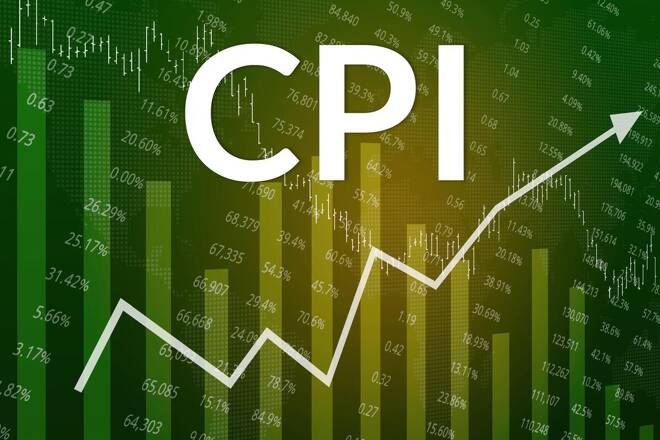Advertisement
Advertisement
Stubborn Core Inflation to Spark Renewed Rate Hike Concerns
By:
The CPI inflation statistics might indicate that more efforts are required to combat inflation, even though it's decreasing from its peak levels.
Highlights
- Experts predict 5.2% inflation increase in March CPI report
- Core inflation expected to rise by 0.45% on a monthly basis
- Fed considering 0.25-percentage-point hike if inflation remains strong
Overview
On Wednesday, the U.S. Consumer Price Index (CPI) report will be released, which is expected to impact the trajectory of interest rates and the market’s near-term interest rate outlook. The Federal Reserve has previously indicated that borrowing costs will remain around current levels through 2023. However, if consumer prices rise significantly, it could lead to increased pressure on asset prices and a shift in the market’s expectations.
March CPI Report Expected to Show 5.2% Inflation Increase, Core Inflation a Concern.
Experts predict that the March Consumer Price Index (CPI) report will indicate a 5.2% increase in inflation compared to the previous year, slightly lower than the 6% seen in the prior month. While inflation hasn’t dropped as rapidly as desired, some estimates indicate that the March data could show a better outlook.
However, the inflation rate excluding food and energy, known as core inflation, may be more concerning, with an expected rise of 0.45% on a monthly basis. The February report indicates that housing costs rose by over 8% year-on-year, which has significantly raised the overall inflation rate in the United States.
Interest Rate Hike Possible as Inflation Persists
The Federal Reserve’s next interest rate meeting is scheduled for May 3. If inflation remains strong month-on-month, it may encourage the Fed to consider a 0.25-percentage-point hike when they meet in May. Interest rate traders currently assign a 67% probability to the Federal Open Market Committee raising the short-term federal funds rate by another quarter of a percentage point.
Inflation Data to Affect Fed Meeting Decision
The inflation data will certainly have some influence on what the central bank decides to do at the next Fed meeting. However, the Federal Reserve might have to be patient and allow high interest rates to take effect on inflation instead of increasing them more. Additionally, some sectors of the economy like the housing market and recent job market data show signs of weakness.
Fed to Consider Holding Rates as Inflation Remains Worry.
In general, the forthcoming CPI inflation statistics might indicate that more efforts are required to combat inflation, even though it’s decreasing from its peak levels.
The Federal Reserve is contemplating keeping interest rates at their current high levels rather than increasing them any further to reach their objective, as various economic hazards are emerging that could result in a trade-off between inflation and economic growth in the upcoming months. In any case, the inflation statistics for March are likely to demonstrate that inflation remains a worry.
About the Author
James Hyerczykauthor
James Hyerczyk is a U.S. based seasoned technical analyst and educator with over 40 years of experience in market analysis and trading, specializing in chart patterns and price movement. He is the author of two books on technical analysis and has a background in both futures and stock markets.
Advertisement
